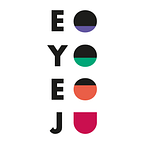Change Agent and Programming Director Katie Ross on New Efforts To Close America’s Deep Digital Divide
By Megha Goel
When teachers in classrooms asked students what they wanted to become when they grew up, girls shouted out professions like “fashion designer” and “doctor.” But one, Katie always confirmed, “I want to work for a non-profit.” While many might have disapproved, she always knew that she wanted to build her humanitarian service career, although not sure in what capacity.
“I’m certain that my commitment now and as a child to fair treatment, equality, and trying to ensure inclusivity comes from my early experiences.”
Katie Ross was born and raised in Maryland. At an early age, she was exposed to society’s inequalities as she worked for less privileged communities as a part of her school curriculum. Ross was privileged to attend Sandy Spring Friends School, which she says was about teaching academics and fostering simplicity, peace, integrity, community, equality, and stewardship that enables individuals to bring positive change in the world. “I grew up admiring my great grandmother, Rose C. Kramer, who was the president of the Board of Education in Maryland. At that time, she led the Brown v. Board of Education ruling to desegregate schools in Maryland.”
Division 1 swimmer and captain, Katie pursued a bachelor’s in psychology and biological science. After her graduation, she joined Americorps as a playworks coordinator, where she facilitated play encouraging social-emotional skill development in children. Ross says, “this experience showed me the real picture of inequality and adversity that students from low-income communities were facing.” She talks about systemic issues in the education system and the lack of access to essential educational resources and tools. Ross spent the second year of her career working on the Community Transition Academy development and outreach team, where she made significant changes in how things were done traditionally.
Engaging youth in meaningful programming might sound easier than done. “It requires the engagement of youth and the community in being a part of creating solutions for sustainable and systemic change.”
Katie Ross, now 25, is the director of programming for YODJ, EYEJ and a postgraduate student at Case Western pursuing a double master’s degree in social work and non-profit management. “With a keen interest in designing programs, I am always looking at ways to improve programming implementation while finding creative ways to increase youth engagement in our digital world.” In the second year of her career with EYEJ, she oversees programming, design, implementation, data evaluation, impact, and management regarding volunteer coordinating training and curriculum. Furthermore, Ross talks about EYEJ’s different programs. She says, “our discussion series before COVID (now known as YODJ: Youth Online Discussing Justice) is a program that focuses on connecting 6th to 12th graders to diverse, trained individuals to discuss a wide array of topics through a trauma-informed lens in a judgment-free space.” She adds, the programs are built to encourage and empower students to develop self-efficacy and confidence, promoting youth as change agents outside of programming. She explains how the programs provide youth with the platform they need to strengthen their social capacities and become tomorrow’s leaders. The youth council (YC) members coming from YODJ have built tools and resources that they need to create change effectively. They are actively going out and creating change around topics of concern. The pathway from YODJ to YC empowers youth to make decisions to impact the community positively, set goals, and become self-valued leaders. The third program EYEJ Speaks, ties in adults. It involves stakeholders and expert views on topics that the students have internally discussed in the youth council and YODJ addressing it to the adult community.
“With our work, from all directions of programming, we have brought a ton of awareness and advocacy to the issues surrounding the digital divide. We have also implemented a new curriculum topic of digital literacy.”
Talking about new efforts to bridge the digital divide, Katie mentions that EYEJ is working on designing a Digital Literacy Mentorship Program. She says that the organization is now moving forward, focusing on fundraising and continuing YODJ in 5 new schools offering students a safe space to voice out. Ross says, “the program is framed to develop relationships and mentorships between millennials and students built on trust and rapport so that students can utilize technology to improve their quality of learning. Right from simple things like making a zoom account to use excel sheets for their assignments successfully.” The future belongs to the youth. But without proper access to resources and tools, we are only setting them up for failure. The mentorship program is a way to provide a system of check and accountability for students to use technology in all spheres of their lives effectively, from telehealth to resume making to getting a job.
“I don’t yet know what challenges 2021–22 will throw, but we are always going to be there for our youth and meet them where they’re at.”
Katie concludes with a message for her students, “I’m sorry, don’t give up. These issues should not be yours to bear. Our society needs to step up and actively address the disparities you experience. We can only be hopeful and embody compassion while vigorously pursuing equality and justice.”
It’s no stretch to say that social justice reform is difficult, especially in Cleveland. Agreeing with this statement, Katie Ross responds, “the perfect time and space is always now and here. I request people to step outside of their comfort zone and get more involved with social justice reforms. Raise your hands, share your stories, leverage your skills, and take the time to help empower the youth.”
